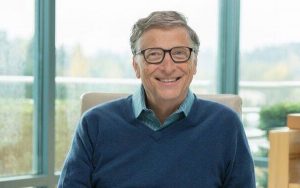Microsoft has entered the pantheon of the most iconic, revered corporations in the history of the world and it has created hundreds if not thousands of ultra-wealthy individuals, but where it falls short is in becoming a corporation that is governed with a sense of responsibility for our nation’s community.
Recently, the Company announced a partnership with the city of Louisville, where it would set up a physical hub to house four ‘fellows’ who will be trained in the subject matter of artificial intelligence (AI). It’s widely known that AI will displace the human worker and that displacement will be most acute in the unskilled labor segment of our nation’s workforce.
The greater Louisville area, which has over 600,000 residents, is largely comprised of those working in the manufacturing field. With help from a think tank, the Brookings Institute, the City of Louisville recognized the impending threat technology has on the working population and sought to mitigate the threat by partnering with large corporation such as Microsoft, Humana, and GE Appliances.
So far, the Microsoft partnership entails awarding four individuals a fellowship to become the areas resident experts on artificial intelligence. The four will be housed in the newly created physical hub with a goal of educating and retraining Louisville’s unskilled to become relevant to the digital economy.
Although it’s a step in the right direction, Microsoft’s agreement with the city lacks any real ambition to help the city. The Company gladly celebrated the agreement and publicized it for all to see, but when looking into the finer details, the agreement has very soft, verging on meaningless, objectives. They include, familiarizing children with basic concepts of digital literacy and empowering current or returning members of the workforce.
And again, the initiative starts with four fellows, that is four people out of 600,000. Microsoft could do better. If it were taking the worker displacement issue seriously, they would establish more concrete objectives. Microsoft didn’t get where it is today by having soft, unclear objectives backed by four people. If it were to put just one-tenth of one percent of its collective brainpower into the issue of worker displacement, Microsoft could have real impact and in turn become a better model for a corporation that helped define our generation.
























